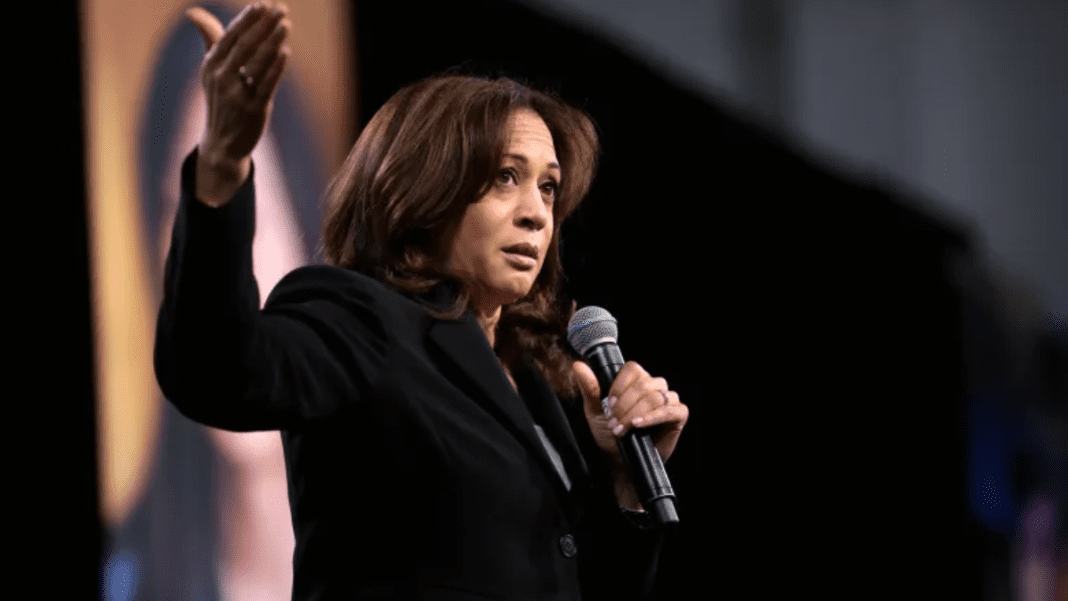Former U.S. Vice President Kamala Harris has signaled that she is not finished with public life, hinting that she could make another bid for the White House in an upcoming election cycle. In an interview with the BBC’s Laura Kuenssberg, Harris said she believed the United States would one day see a woman president — and that the person could “possibly” be her.
“I am not done,” Harris said during the interview, which is scheduled to air Sunday. “I have lived my entire career as a life of service and it’s in my bones.”
Harris’s remarks mark her clearest indication yet that she might reenter the presidential arena after her 2024 defeat to now-President Donald Trump. Though she did not announce any formal plans, Harris made it clear she intends to remain active in American politics, continuing to shape debates on democracy, equality, and governance.
The former vice president, who served as the running mate of President Joe Biden from 2021 to 2025, has largely kept a low public profile since leaving office. But the BBC interview suggests Harris is reasserting her political voice at a time when the Democratic Party is evaluating its future leadership and message.
Kamala Harris rallies Democrats during shutdown — ‘we won’t trade healthcare for tax breaks;
‘Possibly’ President One Day
When asked directly whether she saw herself as the future female president she envisioned, Harris replied, “Possibly.” The remark was delivered with a smile but reinforced the idea that she is weighing her political options.
She added that she believes her grandnieces will “in their lifetime, for sure” see a woman president, underscoring her long-standing advocacy for women in leadership. The answer immediately drew renewed attention to Harris’s role as the first woman, first Black, and first South Asian vice president in U.S. history — a milestone that still shapes her political identity.
In discussing her political resilience, Harris dismissed polling data that ranks her behind other potential Democratic contenders for the 2028 ticket. “If I listened to polls,” she said, “I would not have run for my first office, or my second office — and I certainly wouldn’t be sitting here.”
After historic run, Kamala Harris faces toughest question yet: what now?
Harris emphasized that her motivation remains tied to public service rather than personal ambition. Her tone reflected a blend of defiance and determination, traits that have defined her career from her years as California’s attorney general to her tenure as vice president.
Political analysts say her statements are consistent with a pattern of careful positioning, in which she maintains visibility and influence without committing to a formal campaign. The BBC interview, though brief, offered the clearest sign that she still considers herself a viable figure within the Democratic establishment.
Criticism of Trump and America’s Political Climate
During the same interview, Harris was sharply critical of President Donald Trump, arguing that many of her earlier warnings about his governing style had come true. “He said he would weaponize the Department of Justice — and he has done exactly that,” she said, referring to ongoing political controversies surrounding federal investigations and media control.
Harris pointed to the recent suspension of television host Jimmy Kimmel by ABC following his comments about conservative activist Charlie Kirk’s death, which Trump publicly celebrated. “You look at what has happened in terms of how he has weaponized, for example, federal agencies going around after political satirists,” Harris said. “His skin is so thin he couldn’t endure criticism from a joke and attempted to shut down an entire media organization in the process.”
Her remarks suggest a deep concern over what she views as a crackdown on dissent and press freedom in the Trump era. While she avoided calling for any specific action, Harris painted a picture of a political environment where fear and loyalty have replaced independence and courage.
She also voiced frustration with what she described as American business leaders and institutions “bending the knee at the foot of a tyrant.” According to Harris, corporate executives have chosen proximity to power over principle, seeking political favor to secure mergers or avoid regulatory scrutiny. “There are many who have capitulated since day one,” she said, “because they want to be next to power, because they want to perhaps have a merger approved or avoid an investigation.”
The former vice president’s remarks signal a continuing ideological battle over the character of American democracy and leadership accountability. Harris, while no longer in office, continues to speak in the language of institutional defense — portraying herself as part of a political generation determined to preserve what she considers core democratic values.
Her criticism of both Trump’s administration and compliant elites underscores a broader message about the fragility of political integrity in an age of partisanship and economic influence. While Harris avoided discussing any new political movement or campaign machinery, her remarks left little doubt that she remains a visible and vocal player in national discourse.
